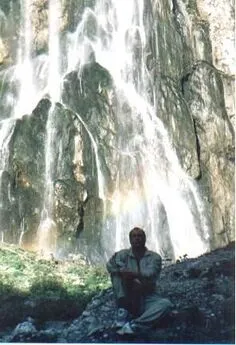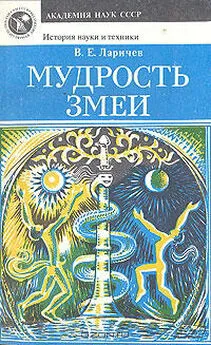Джон Зерзан - Первобытный человек будущего
- Название:Первобытный человек будущего
- Автор:
- Жанр:
- Издательство:Гилея
- Год:2007
- Город:Москва
- ISBN:5-87987-043-Х
- Рейтинг:
- Избранное:Добавить в избранное
-
Отзывы:
-
Ваша оценка:
Джон Зерзан - Первобытный человек будущего краткое содержание
Первобытный человек будущего - читать онлайн бесплатно полную версию (весь текст целиком)
Интервал:
Закладка:
Не то чтобы наш антикультурный герой никогда не говорил ничего стоящего. Отмечая вездесущую саморекламную природу американского общества: «Американский флаг сам свидетельствует об этом, своим присутствием на каждом углу... не в качестве героического знака, а как торговая марка хорошего брэнда». Может, и не особенно глубоко, но сойдет. Удивительно, однако, насколько редки подобные моменты прозорливости, насколько мало иронии в потоке откровенно глупых и реакционных комментариев.
Постепенно читатель начинает понимать, к чему ведет Бодрийяр. Восхваляя восход Америки, особенно — любовным анализом всего поверхностного, автор становится целиком виден: перед нами полнейшая очарованность тем, что представляется победившим, взгляд на вещи того, кто подчинение принимает как данность. Он наслаждается лучами воображаемого превосходства капитала и находит в этом освобождение. Соответственно, горничная, которую он встречает в мотеле, трудится в условиях «тотальной свободы» (курсив его). Это государство, где «политика освобождает себя, превращаясь в спектакль» (курсив его). Утопия. Рай.
Америка, где «даже мусор чистый». Америка, «гиперреальная в своей тяге к жизни», со всей мощью си-мулякра завоевывает саму реальность. Хочется немного здравого смысла, а также противоядия от подобного бреда — например, осмысленной и сдержанной работы Оррина Клэппа «Перегрузка и скука: эссе о качестве жизни в информационную эпоху». Бодрийяр когда-то журил постструктурализм за его «непонятное пособничество кибернетике» («Забыть Фуко», 1977). В «Америке» он изображает и приветствует хай-тековский фашизм, со всем, что положено — мистификацией, экстазом. Подводя итог — невероятная книга.
БИБЛИОГРАФИЯ
Abraham, G. The Tradition of Western Music. Berkeley: Univ. of California Press, 1974.
Abrams, David. The Spell of the Sensuous. 1995.
Adorno, T. Introduction to the Sociology of Music. Translated by E. B. Ashton. N.Y.: Seabury Press, 1974.
Adorno, T. Philosophy of Modern Music. Transl. by Anne G. Mitchell and Wesley V. Blomster. N.Y.: Seabury Press, 1973.
Adorno, T. Aesthetic Theory / Transl. by Lenhardt. L.: Routledge and Kegan Paul, 1984.
Agel, Jerome. The Radical Therapist. N.Y., 1971.
Ainsworth, Mary D.S. Infancy in Uganda Infant Care and Growth. 1967.
Allport, Gordon. Language and Cognition in Approaches to Language, / Ed. R. Harris. Oxford, 1983.
Arens, W. Man Eating Myth: Anthropology and Anthropophagy. N.Y.: Oxford, 1979.
Baily and Callow. Stone Age Prehistory. Cambridge, 1986.
Ballantine, С Music and Its Social Meanings. N.Y.: Gordon and Breach, 1984.
Bamyeh, Mohammed A. The Ends of Globalization. Minneapolis: University of Minnesota Press, 2000.
Barsky, Arthur. Worried Sick. 1988.
Barthes, Roland. The Empire of Signs. 1970.
Baudrillard, Jean. Mirror of Production. St. Louis: Telos, 1972.
Beauvoir, Simone de. Le deuxienne sense. P.: Gallimard, 1949.
Begler, Elsie. Sex, Status and Authority in Egalitarian Society // American Anthropologist. 1978. Vol. 80.
Bekker, P. The Story of Music. Translated by M.D. Herter Norton and Alice Kortschak. N.Y.: W.W. Norton, 1927.
Benedict, Ruth. Patterns of Culture. N.Y., 1946.
Berndt, Ronald M. Australian Aboriginal Religions. Leiden: Brill, 1974.
Best, Steven and Keller, Douglas. The Postmodern Adventure: Science, Technology, and Cultural Studies at the Third Millennium. N.Y.: Guilford Press, 2001.
Bianconi, L. Music in the Seventeenth Century. Translated by David Bryant. Cambridge: Cambridge Univ. Press, 1987.
Bier, Douglas La. Modern Madness. 1986.
Binford, Lewis R. New Perspectives in Archaeology. Chicago: Aldine, 1968.
Binford, Lewis R. An Archaeological Perspective. NY: Seminar Press, 1972.
Binford, Lewis R. Faunal Remains from Klasies River Mouth. NY: Academic Press, 1984.
Binford, Lewis R. Were There Elephant Hunters at Tooralba? // The Evolution of Modern Hunting / Eds. Nittec-ki and Nktecki. N.Y., 1989.
Bittker. The Industrialization of American Psychiatry // American Journal of Psychology. 1985. Feb.
Bloch, M. The Past and the Present // The Present Man. 1977. Vol. 12.
Bloch, E. Essays on the Philosophy of Music. Transl. by Peter Palmer. Cambridge: Cambridge Univ. Press, 1985.
Bluhdorn, I. Ecological Modernisation and Post-Ecologist Politics in Environment and Global Modernity / Ed. G. Spaargaren, A.PJ. Mohl, and E Buttel. L.: Sage, 2000.
Bodley, John. Anthropology and Contemporary Human Problems. Menlo Park, CA, 1976.
Bonavia, E, ed. Musicians on Music. L.: Routledge and Kegan Paul, 1956.
Boulez, P. Notes of an Apprenticeship / Transl. by Herbert Weinstock. N.Y.: Alfred A. Knopf, 1968.
Boyden, S.V., ed. The Impact of Civilization on the Biology of Man. Toronto, 1970.
Brandt, W. The Way of Music. Boston: Allyn and Bacon, 1963.
Brantlinger, Patrick. Apocalypse 2001 or, What Happens after Posthistory? // Cultural Critique 39. 1998. Spring.
Brown, Norman O. Life Against Death. N.Y., 1959.
Brown, Norman O. Love's Body. N.Y., 1985.
Budd, M. Music and the Emotions: the Philosophical Theories. L.: Routledge and Kegan Paul, 1966.
Buikstra, Jane A. Hopewell in the Lower Illinois Valley. Chicago, 1976.
Bukhofzer, M. Music in the Baroque Era. N.Y.: Harper and Row, 1974.
Burke, P. Popular Culture in Early Modern Europe. N.Y.: New York Univ., 1978.
Burkhardt, J. The Renaissance in Italy, II. N.Y.: Harper and Row, 1958.
Canetti, E. The Human Province. N.Y.: Seabury Press. Translated by Joachim Neugroschel, 1978.
Castel and Lovell. The Psychiatric Society, 1982.
Castells, Manuel. The Internet Galaxy. N.Y.: Oxford University Press, 2002.
Chenneviere, R. The Rise of the Musical Proletariat // The Musical Quarterly. 1920. Vol. 6.
Cipriani, Lido. The Andaman Islanders. N.Y., 1966.
Clark and Piggott. Prehistoric Societies. N.Y., 1965.
Clark, Graham. World Prehistory in New Perspective. 1977.
Cambridge. Clark, P. The European Crisis of the 1590's. L.: Allen and Unwin, 1985.
Coontz and Henderson, eds. Women's Work. L., 1986.
Copland, A. Music and Imagination. Cambridge: Harvard Univ. Press, 1961.
Cotlow, Lewis. Twilight of the Primitive. N.Y., 1971.
Dahlberg, Frances, ed. Woman the Gatherer. New Haven, 1981
Damas, David. Central Eskimo System of Food Sharing // Ethonology II. 1972. P. 220-236.
Darwin, Charles. The Descent of Man. L., 1871.
Davies, Nigel. Human Sacrifice. N.Y., 1981.
De Vries. Primitive Man and his Food. Chicago, 1952.
Deleuze and Guattari. Anti-Oedipus. N.Y.: Viking Press, 1977.
Delson. Ancestors, the Hard Evidence. N.Y., 1985.
Dent, E. The Future of Music. Oxford, N.Y.: Pergamon Press, 1965.
Derrida, J. Glas. P.: Editions Galilee, 1974.
Derrida, J. Spur. Nietzsche's Styles. Chicago: Univ of Chicago Press, 1978.
Dertourzos, Michel. What Will Be: How the New World of Information Will Change Our Lives, 1997.
Diamond, Stanley, ed. Primitive Views of the World. N.Y., 1964.
Duffy, Kevin. Children of the Forest. N.Y., 1984.
Dunwell, W. Music and the European Mind. N.Y.: T. Yoseloff, 1962.
Durant, A. The Condition of Music. Albany: State Univ. of New York Press, 1984.
Durant, John, ed. Human Origins. Oxford, 1989.
Dussel, Enrique. The Invention of the Americas. 1995.
Ehrenberg, Margaret. Women in Prehistory. Norman: Univ. of Oklahoma Press, 1989.
Eisenstadt, A. Eisenstadt on Eisenstadt. N.Y.: Abbeville Press, 1985.
Ellis, Bret Easton. American Psycho. 1991.
Estioko-Griffen, Agnes and Griffen, P. Bion. Woman the Hunter // Woman the Gatherer / Ed. F. Dahlberg. New Haven, 1981.
Ewen, Stuart. Captains of Consciousness. N.Y., 1976.
Fagan, Brian. The Science of Archaeology Comes of Age Archaeology. 1989. Vol. 42.
Fagan, Brian. The Journey from Eden. L., 1990.
Farbland, Armelagos. Consuming Passions. Boston, 1980.
Feenberg, Andrew. Alternative Modernity. 1995.
Feenberg, Andrew. Transforming Technology. N.Y.: Oxford Univ. Press, 2002.
Festinger, Leon. The Human Legacy. N.Y.: Columbia Univ. Press, 1983.
Foster, Mary LeCren. Symbolic Origins and Transitions in the Paleolithic // Emergence of Modem Humans / Ed. Paul Mellars. Ithaca, N.Y., 1990,
Foucault, Michel. The Archaeology of Knowledge. 1972.
Freedman, E, ed. Lectures on the History and Art of Music. N.Y.: Da Capo Press, 1968.
Freud, Sigmund. Psychology of Everyday Life. 1904.
Freud, Sigmund. A General Introduction to Psychoanalysis. Garden City, NY: Garden City Publishing Co., 1920.
Freud, Sigmund. New Introductory Lectures. 1933.
Fried, Morton H., ed. Explorations in Anthropology. N.Y.: Thomas Y. Crowell.
Friedl, Ernestine. Women and Men: An Anthropological View. N.Y.: Holt, Rinehart and Winston, 1975.
Frison. Communal Hunting Strategies // The Evolution of Human Hunting / Eds. Nittecki and Nittecki. N.Y., 1986.
Gadamer, Hans Georg. The Enigma of Health. 1996.
Gans, Eric. The End of Culture. Berkeley, 1985.
Gebser, J. The Ever Present Origin / Transl. by Noel Barsted with Algis Mickunas Athens, OH: Ohio Univ. Press, 1985.
Gellner, Ernest. Sword, Plow and Book. 1989.
Gero, Joan Genderlithics. Women's Role in Stone Tool Production // Engendering Archaeology: Women and Prehistory / Eds. Gero and Conkly. Oxford, 1991.
Gitlin, Todd. Media Unlimited. N.Y.: Metropolitan Books, 2002.
Godelier, Maurice. Perspectives in Marxist Anthropology. N.Y.: Cambridge Univ. Press, 1977.
Goldman, R. Harmony in Western Music. N.Y.: W.W. Norton, 1965.
Goldschmidt, Walter. The Human Career. Cambridge: Blackwell, 1990.
Gootman, Elissa. Job Description: Life of the Party // New York Times. 2003. May 30.
Gowlett, John. Ascent to Civilization. N.Y., 1984.
Gray, C. The History of Music. N.Y.: Alfred A. Knopf, 1931.
Gross, Martin L. The Psychological Society. N.Y., 1978.
Groys, Boris. The Insider is Curious, the Outsider is Suspicious // Uncanny Networks: Dialogues in Virtual Intelligentsia / Ed. Geert Lovink. Cambridge: MIT Press, 2002.
Hadingham, Evan. Secrets of the Ice Age. N.Y., 1979.
Hall, Irish. Why All Those People Fell They Never Have Any Time // New York Times. 1988. Jan. 2.
Harman, David. Illiteracy: A National Dilemma. 1987.
Читать дальшеИнтервал:
Закладка:







